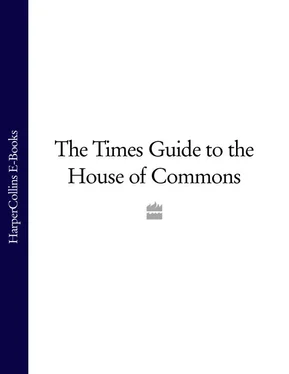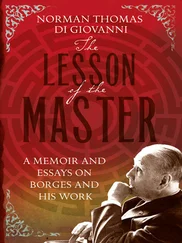As I spoke, believing in the women’s cause, and with many of them, real people, sitting around me, responding, I understood in the gut as well as the brain, what it means to be an MP.
Democracy as we British know it is not experienced in the intellect but in the stomach. What an MP is for is felt collectively at an unconscious level by a population few of whom could express it even if they cared to try. Popular sentiment is a current. It is a wind. It is a subterranean force. When you are with it – when it is with you – you just know. When you are not, you are that sounding brass or tinkling cymbal.
Time and again I rose to my feet in the chamber with what I thought, and still think, a brilliantly true idea to explain. How sure I was that we should adopt road-pricing in our country: that the economic theory of rationing a scarce commodity by price rather than by queue applied not just to turf or treacle tarts, but to tarmac too. Time and again I made speeches, asked questions, wrote newspaper articles, or argued in my Transport Select Committee, setting out a logical case that I knew, and still know, to be true and in the end inevitable.
Nobody listened. Nobody agreed. Nobody disagreed either. Nobody was interested. Nobody cared. Inevitable, yes: but not in 1986. Twentieth-century Britain was not ready for road pricing.
Or reform of the law on homosexuality. Time and again I argued the case for reducing the age of consent. Persistently I complained about police harassment of gay men. How cogently did I unpick the contradictions and expose the imperfections of the law relating to importuning in a public place. How assiduously did I collect evidence, interview defendants, correspond with the Commissioner of the Metropolitan Police and question ministers. How patiently I explained all this in the standing committee. How contemptuous I felt when a kindly Labour whip, the late Walter Harrison, took me aside to advise: “You will get nowhere in this place, lad, unless you leave all that alone.” There is not (Walter went on to explain) the feeling for it in the country. How hotly I protested to myself, under my breath: “Well there ought to be.”
Walter and I were both wrong. Public opinion on homosexuality was moving, changing. There existed the beginnings of an interest group among aggrieved gay men, the beginnings of the courage to stand up for themselves in public; and the beginnings of a supporting group of sympathisers among their millions of friends and relatives. HIV-Aids would in time bring all this to the surface. But 1982 was too early. Fifteen years later, Tony Blair, with his cannier instinct for the public mood, judged the moment right to propose change, as I had judged the moment wrong; and laws were duly amended. That was a time when young politicians and soon-to-be politicians such as David Cameron were changing their minds on social issues like these – or under the impression that they were changing their minds. What they were really doing was picking up, instinctively, a message from the people.
Time and again I spoke and wrote and asked Parliamentary Questions about the plight of the Sahrawi people in the Western Sahara, violently dispossessed by the Kingdom of Morocco. I visited them. I saw their plight. I heard their case. I studied their history. I was convinced. The case I made to the Foreign Secretary was unanswerable.
Indeed unanswered. He could not disagree and did not care to agree. Silence, that most eloquent of Commons responses, should have told me what no minister would put into words: the Sahrawi people have no constituency in the United Kingdom; and the United Kingdom has an interest in supporting Morocco. Silence said so; silence says so much at Westminster; but I was blocking my ears to the silence.
It is a funny feeling, speaking in the chamber when your argument carries no resonance outside it. Your fellow MPs do not howl you down. They just talk among themselves, or lope out for a drink or a cup of tea. You notice the Press Gallery above the Speaker’s Chair clearing. Once you have gained a reputation for arguments that are disconnected from popular sentiment or headline news, your colleagues stop coming in when you are speaking. You argue into a void, like someone talking to the birds in a park. You wait for responses to your speech the next morning; but there is nothing, not even a report. And you reflect on that passage in Thornton Wilder’s The Bridge of San Luis Rey , describing an early feminist: “The Abbess was one of those persons who have allowed their lives to be gnawed away because they have fallen in love with an idea several centuries before its appointed appearance in the history of civilisation. She hurled herself against the obstinacy of her time.”
You hear it said, not of yourself but of others like you, that they are “frightfully clever” but “a bit of a loner”. And if not remarkably thick-skinned (which, surprisingly, few MPs are) you become prey to feelings of injustice and self-pity.
They are misplaced. You are overlooking something rather obvious. The House of Commons is not a place where ideas are born and knows in its heart that it is not supposed to be. It is an echo-chamber in which interests and opinions are spoken for, and tested for resonance among more than six hundred other tribunes – and for their resonance, when reported, outside.
Resonance is not the same thing as rationality. During the last Parliament, Joanna Lumley, Nick Clegg and a small band of mostly backbench MPs understood how much more resonant was the case for special privileges for former Gurkhas than it was rational. Towards the end of the last century, Margaret Thatcher and much of her Cabinet failed to understand how much less resonant was the case for the Poll Tax, than it was reasonable. When the last Prime Minister, Gordon Brown, was Chancellor in 2000 he and his Cabinet colleagues were surprised (and threatened with a backbench rebellion) when they failed to anticipate that opposition to an entirely rational 75p per week increase in the state pension (in line with subdued inflation) would carry tremendous resonance outside the counting-houses of Whitehall. The same Cabinet entirely misjudged the (irrational) anger of motorists at (rational) increases in fuel duty, in line with rising prices.
Let us try to construct the profile of a fictional backbencher who made the right call on each of these judgments: the imaginary MP (let us call him Reg Smythe) who found himself on the right side of the argument on Poll Tax, Fuel Tax, pension increases, Gurkhas and Joanna Lumley. Three features, I would submit, stand out in Reg Smythe’s profile. First, he is not unduly troubled by logic. Secondly, he has a keen sense of the importance to voters of their wallets. Thirdly, his ear is well-attuned to waves of popular sentiment.
But I would add this about Reg. He gets genuinely fired-up in the causes to which he attaches himself. His eyes prick with tears as he stands beside Dame Joanna and a cluster of ageing Ghurkhas, and the hard-heartedness of the Ministry of Defence infuriates him. His rage at the 75p pension increase is not synthetic, and he knows many pensioners in his own constituency whose distress is real. He has entirely persuaded himself that fuel-tax increases are wrong not because motorists should not pay their share of environmental costs (Reg is passionate about the environment, too) but because transport is the lubricant of our whole economy, and these increases will hit entrepreneurs, road-hauliers and small business people.
And one further and most important remark. Not all these causes, and by no means all the arguments to which a dedicated tribune of the people may devote his energies, are majority causes. Some will be as unpopular among some voters as they are popular among others. Great parliamentary careers have rested, often enough, on the dogged association of an MP with a small but defined interest group, whose self-appointed guardian angel he becomes. He brings to the table that group, their concerns, and their potential support, and may not distract himself with larger causes. He is their man – or she their woman – and the MP the Chancellor takes aside for an anxious chat whenever the issue looks like trouble. An MP, in short, can fight for minorities all his life, while staying in tune with the type of democracy that energises a British parliamentary career.
Читать дальше












